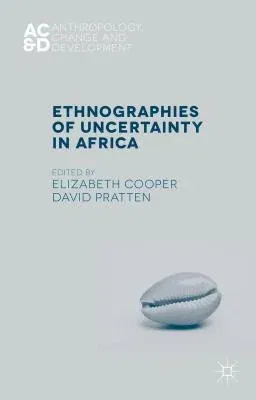Ethnographies of Uncertainty in Africa (2015)Hardcover - 2015, 31 October 2014

Qty
1
Turbo
Ships in 2 - 3 days
In Stock
Free Delivery
Cash on Delivery
15 Days
Free Returns
Secure Checkout

Part of Series
Anthropology, Change, and Development
Part of Series
Anthropology, Change and Development
Print Length
211 pages
Language
English
Publisher
Palgrave MacMillan
Date Published
31 Oct 2014
ISBN-10
1137350822
ISBN-13
9781137350824
Description
Product Details
Book Edition:
2015
Book Format:
Hardcover
Country of Origin:
GB
Date Published:
31 October 2014
Dimensions:
21.59 x
14.22 x
1.78 cm
Genre:
African
ISBN-10:
1137350822
ISBN-13:
9781137350824
Language:
English
Location:
London
Pages:
211
Publisher:
Weight:
385.55 gm